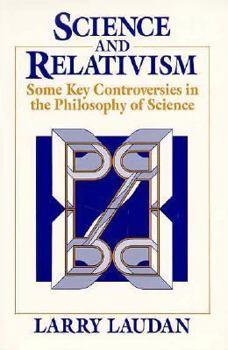Science and Relativism: Some Key Controversies in the Philosophy of Science
Select Format
Select Condition 
Book Overview
In recent years, many members of the intellectual community have embraced a radical relativism regarding knowledge in general and scientific knowledge in particular, holding that Kuhn, Quine, and Feyerabend have knocked the traditional picture of scientific knowledge into a cocked hat. Is philosophy of science, or mistaken impressions of it, responsible for the rise of relativism? In this book, Laudan offers a trenchant, wide-ranging critique of cognitive relativism and a thorough introduction to major issues in the philosophy of knowledge.
Format:Paperback
Language:English
ISBN:0226469492
ISBN13:9780226469492
Release Date:August 1990
Publisher:University of Chicago Press
Length:194 Pages
Weight:2.85 lbs.
Dimensions:0.5" x 4.6" x 8.7"
Customer Reviews
1 rating
Great introduction to modern epistemology
Published by Thriftbooks.com User , 22 years ago
The book is structured as a transcript of a debate between philosophers attending a symposium on the role of science and relativism; each represents one of the major epistemic positions -- logical positivism, pragmatism, realism, and relativism. They don't come to a unified conclusion, of course -- what else would you expect from philosophers? -- but in the process of the discussion, a lot of core issues in modern epistemology are covered in a way easily accessible to a layman. The discussion is generally framed in terms of relativistic position on various epistemic issues, and each opposing philosophical scheme's counter to such.This book is the best introduction to modern epistemology that I have ever read. It is relatively small, which is a blessing, even though the writing is simple as far as philosophical texts go; and it is deep enough to both inform, and stimulate further meaningful inquiry. I would stongly recommend this book to anyone approaching epistemology and philosophy of science for the first time.





